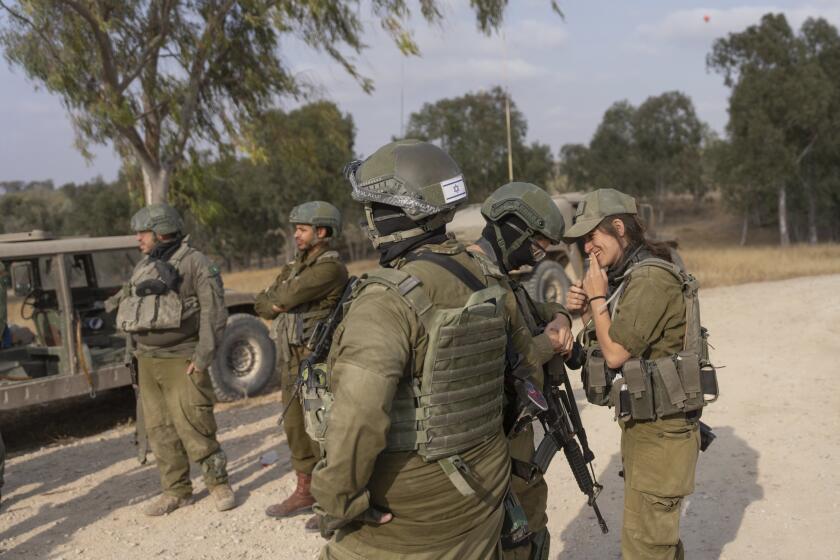Quicksand in Liberia
President Bush continues to say that before he dispatches U.S. troops to Liberia -- if he does so at all -- President Charles Taylor must leave the country. Taylor is still there. Were American forces to be sent, their job would be keeping the peace between government thugs and rebel criminals. But there is no peace to keep. Those are two powerful reasons against intervention. A third, overarching reason is the absence of U.S. national interest. Even if Taylor were to flee and a new cease-fire were to take hold, great caution would be required before plunging the U.S. into the middle of a civil war, no matter how heart-rending the photographs of refugees.
Washington sent extra Marines to Monrovia, the Liberian capital, Monday to beef up the U.S. Embassy security force and assist in evacuations of Americans if necessary. That’s prudent and requires only several dozen troops.
The United States has two small assessment teams in West Africa, one evaluating the humanitarian crisis in Liberia and the other in Ghana talking with the Economic Community of West African States. Unless those two squads produce new evidence and arguments, there is no compelling case for intervention.
The West Africans should take the lead in trying to separate the warring factions. It is the nations closest to Liberia that are threatened by a spillover of violence. This is not just a threat: Taylor has fomented violence in Sierra Leone, where he has been indicted as a war criminal, in Guinea and in Ivory Coast.
Bush wisely resisted entreaties to send Americans to Liberia before and during his visit to five African nations this month. Last week, United Nations Secretary-General Kofi Annan renewed his plea for U.S. intervention, winning a Bush statement that any U.S. deployments would be “limited in size and limited in tenure.”
But U.S. Army officials already complain that their forces are spread thin, with almost 150,000 troops in Iraq, 9,000 in Afghanistan, tens of thousands in South Korea and thousands more in the Balkans. Many of the rest of the Army’s 500,000 or so active-duty forces are on training exercises or rotating from overseas deployments.
Advocates argue that only a few hundred or a few thousand troops would be required in Liberia. But sending too small a force invites disaster. So does the lack of an exit strategy, and, as in Somalia a decade ago, the spiral of a humanitarian crisis into guerrilla war.
Washington should encourage an intervention by Africans and offer logistical support that does not endanger American troops, by sharing intelligence, for instance. But it should avoid stepping in the quicksand of a civil war where potential Taylor successors look like scant improvement. The United States, especially the military, has enough problems without adding Liberia.
More to Read
Start your day right
Sign up for Essential California for news, features and recommendations from the L.A. Times and beyond in your inbox six days a week.
You may occasionally receive promotional content from the Los Angeles Times.






